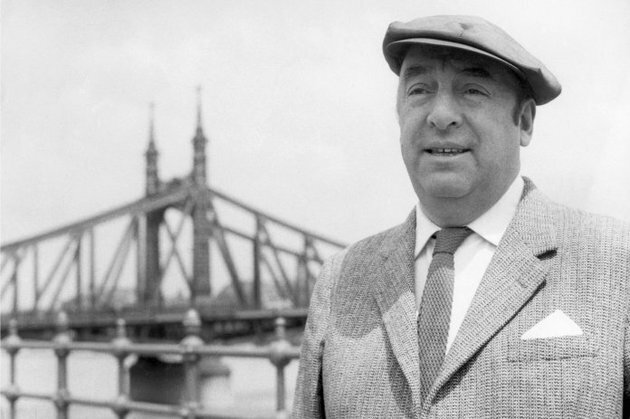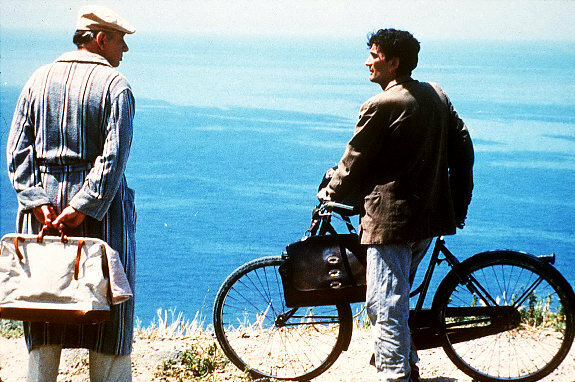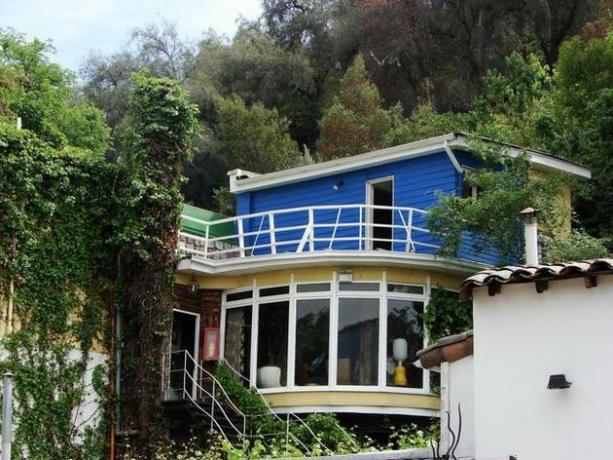Pablo Neruda he was an important Chilean writer and politician considered one of the greatest poets of Latin American and contemporary literature in the world.
Neruda has received several awards, including the Lenin Peace Prize (1953) and the Nobel Prize for Literature (1971).
According to him, writing literature:
It is to describe what you truly feel at every moment of existence. I don't believe in a poetic system, in a poetic organization. I will go further: I do not believe in schools, nor in Symbolism, nor in Realism, nor in Surrealism. I am absolutely disconnected from the labels that are placed on products. I like the products, not the labels.
Biography of Pablo Neruda
Neftalí Ricardo Reyes Basoalto was born in Parral, Chile, on July 12, 1904.
Son of worker José del Carmen Reyes Morales and teacher Rosa Basoalto Opazo, Neruda was orphaned of mother very early, and his father remarried, at which point his family moved to Temuco, in 1906.
In primary studies, he already showed great interest in literature by publishing his first poems in the newspaper “A Manhã”.
He studied pedagogy at the University of Chile in Santiago. While still young, he adopted the pseudonym Pablo Neruda, inspired by the French writer Paul Verlaine and the Czech Jan Neruda.
At just 19 years old, he published his first book of poems “twilight” (1923), which was recognized in the literary world. Soon after, he published one of his most famous works “Twenty love poems and one desperate song” (1924).
Neruda was a very passionate poet, marrying three times. First, he married the Dutch Marie Antoinette Hagenaar. Then with the Argentine Delia del Carril and, finally, with the Chilean Matilde Urrutia, with whom he remained until the last days.
In addition to his interest in literature, Neruda served as a diplomat and politician, being Consul General of Chile in Burma, France and Spain, as well as ambassador to Mexico from 1940 to 1942.

He was Consul of Spain during the Spanish Civil War (1936-1939), when he wrote his work “Spain in the Heart. Hymn to the Glories of the People in War”.
During his travels he met Spanish writers Federico Garcia Lorca (who died in the Spanish Civil War) and Rafael Alberti.
In Chile, he was elected Senator by the Communist Party in 1945. However, he remained until 1946, as he had to live in hiding after the election of Gabriel González Videla, a moment of censorship and repression in Chile.
In 1950, he published "General Corner”, political verses in defense of Latin America; and two years later, he returns to Chile supporting the candidacy of Salvador Allende.
Neruda's Death
Neruda died on September 23, 1973, in Santiago, Chile, victim of prostate cancer. He died 12 days after Pinochet's military coup, which would overthrow Allende's government.
Film "The Postman and the Poet"

In 1994, the feature film “The Postman and the Poet” (Il Postino, in Italian), based on the work of the Chilean writer Antonio Skármeta. In the work, he recounts the moments of Neruda and Matilde (his third wife) in Ilha Negra.
The house in which they lived in Santiago was built in 1953 and became known as “There barbeque”, which later became a museum.

Works by Pablo Neruda
Pablo Neruda has a vast literary work with more than 40 books, written between 1923 and 1973. His work is marked by a great content of lyricism and humanism, which stand out:
- Twilight (1923)
- Twenty Love Poems and One Desperate Song (1924)
- General Corner (1950)
- Elementary Odes (1954)
- One Hundred Sonnets of Love (1959)
- Black Island Memorial (1964)
- End of the World (1969)
- I confess that I lived (1974)
- The Invisible River (1980)
- Complete Works (1967)
Poems by Pablo Neruda

Below are two poems by Neruda, the first published in the book “20 love poems and a desperate song” and the second in the “General Corner”:
Poem 1
Woman's body, white hills, white thighs,
they seem to you to the world in your attitude of surrender.
My wild peasant body digs you
and makes the child jump from the bottom of this earth.
It was just like a tunnel. The birds are gone from me
and in me the night entered with its mighty invasion.
To survive me I forged you like a weapon,
like an arrow in my bow, like a stone in my sling.
But the time for revenge comes, and I love you.
Body made of skin and moss, with avid milk and firmness.
Ah the breast vessels! Ah the eyes of absence!
Ah the pubic roses! Ah your slow and sad voice!
My wife's body, will continue in your grace.
My thirst, my boundless eagerness, my undecided path!
dark wrinkles from where eternal thirst follows,
and fatigue follows, and this infinite pain.
Love America (1400)
Before the coat and tails
were the rivers, arterial rivers:
were the mountain ranges in whose shabby wave
the condor or snow seemed immobile;
it was the humidity and the forest, the thunder,
still unnamed, the planetary pampas.
The earth man was, bowl, eyelid
of the trembling clay, form of clay,
it was caraíba pitcher, chibcha stone,
imperial cup or araucana silica.
Tender and bloody it was, but in the fist
of your moistened crystal weapon
the initials of the land were written.
No one can
remember them later: the wind
forgot them, the language of water
was buried, the keys were lost
or flooded with silence or blood.
Life was not lost, pastoral brothers.
But like a wild rose
a red drop fell in the forest
and a lamp was extinguished from the earth.
I am here to tell the story.
from the peace of the buffalo
even the battered sands
of the final earth, in the foams
accumulations of Antarctic light,
and by the crashed Lapas
of the dark Venezuelan peace,
I looked for you, my father,
young warrior of darkness and copper,
or you, bridal plant, untamed hair,
alligator mother, metallic dove.
I, Incan of the mud,
I touched the stone and said:
Who is waiting for me? and I shook my hand
over a handful of empty crystal.
But I walked among Zapotec flowers
and sweet was the light like a deer
and the shadow was like a green eyelid.
My land without a name, without America,
eguinocial stamen, purple spear,
your aroma rose through my roots
even the cup I drank, even the thinnest
word not born of my mouth.
Neruda's Phrases
Below are some emblematic phrases of the writer:
- “Someday, anywhere, anywhere, you will unfailingly find yourself, and this one, only this one, may be the happiest or the most bitter of your hours.”
- “Two happy lovers have no end or death, they are born and die so often while they live, they are eternal as nature is.”
- “Saudade is loving a past that hasn't passed, It's refusing a present that hurts us, It's not seeing the future that invites us.”
- “Writing is easy. You start with a capital letter and end with a period. In the middle you put ideas.”
- “If nothing saves us from death, at least love saves us from life.”
- “You are free to make your choices, but you are a prisoner of consequences..”


